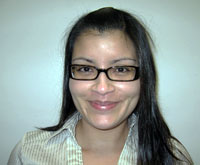Cindy Marquez
The Signal
October is breast cancer awareness month, but for many, especially women, awareness and prevention cost money they don’t have for a problem they can’t afford to fix even if they know they have cancer.
The U.S. Census Bureau report, “Small Area Health Insurance Estimates,” indicated that for 2007, there were 168,910 women, aged 40 – 64 years, with no insurance.

I understand what it’s like to need medical treatment, but not be able to afford the ridiculous costs. In 1997, I was diagnosed with a chronic condition at the age of 20, and I was uninsured. Knowing that I would need proper health care the rest of my life, my mom researched some private health insurance carriers.
After finding out most of the carriers wouldn’t cover me with a pre-existing condition and the ones that would, I couldn’t afford, my gastroenterologist recommended that I apply for the Harris County Gold Card. Fortunately, I was approved.
Unfortunately, many people fall through the cracks and never receive the medical attention they need.
Uninsured women living in the U.S. don’t get the necessary preventative screenings due to the lack of affordable private insurance or do not qualify for medical assistance programs.
The alarming fact is there will be an estimated 39,520 female deaths caused by recently diagnosed breast cancer in 2011-2012, indicated on The American Cancer Society (ACS) website.
I’m sure the availability of health care for these women will vary, if any was provided at all. It’s very frightening to think about the potential loss of a woman’s life that could have possibly been prevented simply by accessibility to the appropriate health care.
Patients screened through the Project VALET (PV) program deeply express how grateful they are for the chance to have a screening mammogram, who otherwise may never receive one or receive one when it’s too late.
With such a high volume of uninsured women, there is clearly a need for programs that offer preventative screenings such as PV. With initial funding from the National Breast Cancer Foundation, development began in January 2008 to create PV, a program formed to address the needs of Houston Department of Health and Human Services patients (HDHHS).
PV provides mammograms at no cost to patients of HDHHS who are 40 – 65 years old, do not have health insurance or the Harris County Gold Card, and are referred for a screening mammogram by their doctor or nurse practitioner.
PV arranges for MD Anderson’s Mobile Mammography unit to regularly visit several of the city’s participating health centers. Participating clinics that provide a pap and clinical breast exams are La Nueva Casa De Amigos Health Center, Northside Health Center and Sunnyside Health Center.
In order to receive a no-cost screening mammogram, a pap test and a clinical breast exam must be scheduled at an HDHHS Family Planning and Pap Clinic. The appointment phone line is 832-393-5428, and the cost is $3. This is the only cost patients incur in the entire screening process.
Eligible participants attend an educational session at one of the city’s health and multi-service centers to learn what to expect on the day of the mammogram screening and the importance of early detection for breast cancer.
Follow-up diagnostic evaluations are provided by PV and coordinated through The Rose, a Houston non-profit breast cancer organization that provides services to low-income and uninsured women. Women diagnosed with breast cancer will receive assistance in obtaining treatment from navigators from The Rose, along with PV personnel.
Currently, only four out of 890 women who have received a mammography screening through PV have been diagnosed with breast cancer and received treatment for their breast cancer through either the Harris County Hospital District or at MD Anderson Cancer Center.
ACS states on its website that although breast cancer in men is a rare disease, it accounts for approximately one percent of breast cancer cases in the U.S. The death rate for male breast cancer has decreased by 3.3 percent per year since 2000.
Other facts and figures from ACS point out that only 28.6 percent of uninsured women 40 and older received a mammogram and a clinical breast exam in Texas during 2010. Additional programs such as Project V are crucial for uninsured woman in order to have the opportunity to receive these types of preventative screenings, who may not be able to afford it otherwise.

